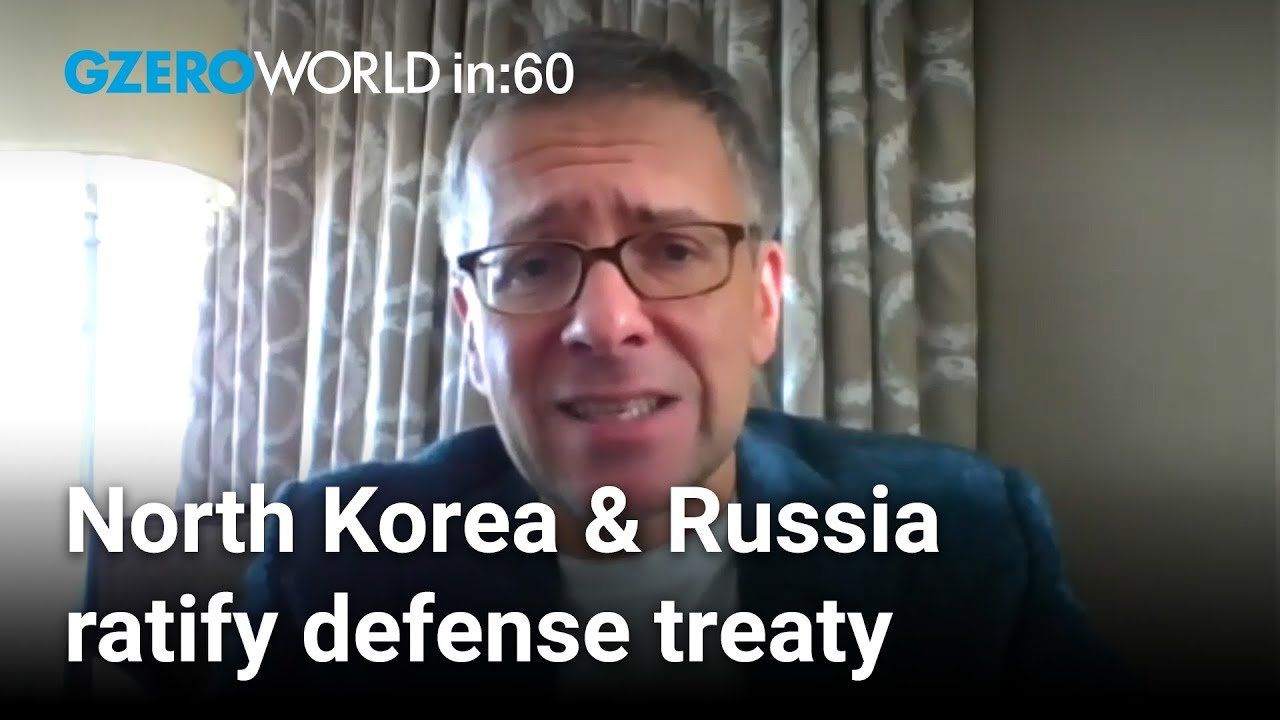Ian Bremmer shares his insights on global politics this week on World In :60.
North Korea ratified a major defense treaty with Russia. What do both sides hope to gain?
Well, the North Koreans really want mutual defense. They are helping the Russians out in their time of need, sending a whole bunch of troops, things that the North Koreans have in surplus and don't really value and the Russians can really use right now. And they would love to see Russian troops in North Korea. They'd love to see that appear as mutual defense and give the North Koreans a lot more leverage so they are not forced to be supplicants in Beijing, and they can also be more assertive versus South Korea, Japan, and others. This is a major escalation in this war and a big problem geopolitically.
The Russians, of course, are just looking for more troops, more ammunition, more ability to fight, and they are in a much, much stronger position to get terms that they want from the United States and from the Ukrainians. Especially now that the US has elected somebody that says he really, really wants to end the war. Putin will be like, "Okay, but here are the things that I need if you want me to end the war." Trump's incented to give him a lot more of those than almost anybody in NATO right now.
Japan's PM survived a rare parliamentary vote. How will he tackle the country's sluggish economy?
Well, he is saying that he's going to do a lot more stimulus, and so basically blow out the budget. Exactly, not where he has been historically. Japan's economy is pretty flat. Interest rates are close to zero, though they've been pushing them up a bit, historically surprising, recently. It's not like companies are all itching to get into Japan. Their demography is falling apart, and most people are pushing their production elsewhere, so including Japanese companies. So it's a real challenge, and Ishiba is going to be there maybe for a year. This is a very weak LDP coalition government.
What do I expect to come from COP29, the new climate summit happening in Baku?
Well, the Americans are attending with their knees cut off because Trump is going to be president in a couple months and he will pull the Americans out of the Paris Climate Accord once again. The trajectory on post-carbon investment and the prices coming down at scale for the Americans and for everyone in the world is already way too well-developed to pull back, and that's a good thing. But the US is going to be focused more on additional permitting and for oil and gas and production increases. Even beyond the record levels that they are right now under the Biden administration. They'll go further.
And so it's really, the Americans are going to be pretty marginalized at this summit, and the Chinese are driving the bus. They're producing a lot more coal, of course, but at the same time, they're also producing a hell of a lot more post-carbon renewables at global levels. In other words, China's doing at global scale what Texas is doing in the United States. And that is making them much more important as decision-makers.
More For You
15: The number of migrants who died after their boat accidentally collided with a Greek Coast Guard vessel in the Aegean Sea on Tuesday. Two dozen people were rescued.
Most Popular
Walmart is investing $350 billion in US manufacturing. Over two-thirds of the products Walmart buys are made, grown, or assembled in America, like healthy dried fruit from The Ugly Co. The sustainable fruit is sourced directly from fourth-generation farmers in Farmersville, California, and delivered to your neighborhood Walmart shelves. Discover how Walmart's investment is supporting communities and fueling jobs across the nation.
Democratic Alliance leader John Steenhuisen announced Wednesday that he will not run for a third term as leader of the liberal, pro-business party, after months of internal pressure over a host of controversies – including allegations, since cleared, that he used the party credit card for Uber Eats.
